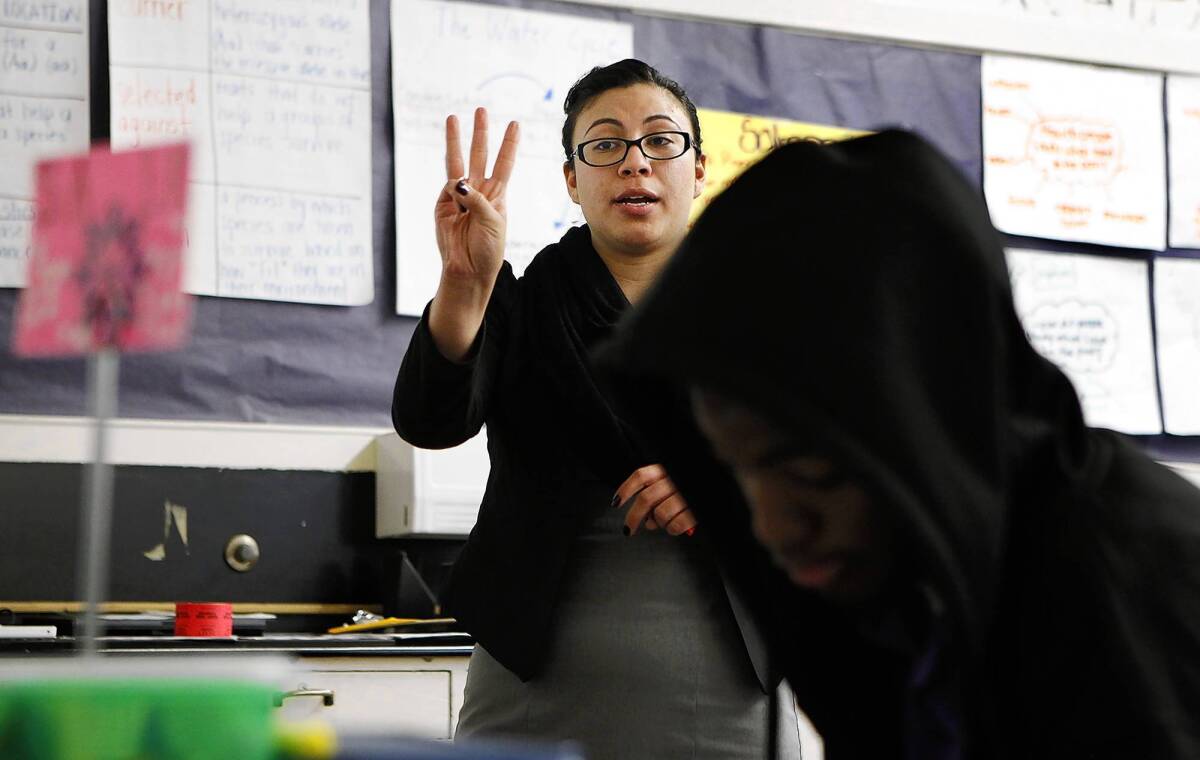Letters: Who should teach?

Re “New rules for interns in schools,” March 8
The problem with putting teaching interns from programs like Teach for America into classrooms with English-language learners isn’t the interns’ lack of competence teaching such students; it’s their lack of competence period.
The young intern profiled in your article, Stephanie Silva, has a degree in political science but is teaching chemistry to special-education students in high school. Credentialed teachers are required to either pass a test in their subject or to have a college degree in that subject. Because of these rules, hiring fully qualified math and science teachers is difficult.
It’s wrong to lay off credentialed teachers and hire inexperienced ones based on enthusiasm rather than competence. If all it takes to teach chemistry to special-needs students is a five-week training program, then why did I spend a couple of years getting two credentials?
Karen D. Hamstrom
Huntington Beach
Teach for America channels bright, ambitious young people into classrooms. Many of them are willing to forgo better-paying careers to serve public school students.
As a former educator, I worked with Teach for America instructors. Intellectually, professionally and even personally, some were a cut above those who graduated from education schools and had credentials.
By proposing to eliminate the intern credential program upon which Teach for America relies, the California Commission on Teacher Credentialing has shown it is ideologically aligned with the teachers unions to keep promising young instructors out of schools and preserve the jobs of mediocre teachers. It is time to stop the charade. Let capable people teach.
Henry Tse
Rosemead
Re “A Teach for America fight,” Editorial, March 7
The proposal before the Commission on Teacher Credentialing regarding intern teachers is not bad policy. What’s bad policy is the current one that labels intern teachers with little training in how to teach English learners “fully prepared.”
Teach for America talking points aside, that program’s and other’s interns will not be prevented from teaching where a suitable, fully prepared teacher is not available. What the proposal will do is require most programs to ramp up their training for English-learner teachers before candidates hit the classroom as the teacher of record, and to accurately label their qualifications.
And it’s not unions calling out the commission for its current unlawful practices. It’s advocates and community-based organizations that want students taught by fully trained personnel where available, and want transparency where they are not.
The Times should be an advocate for English-learner students, not a mouthpiece for Teach for America.
John Affeldt
San Francisco
The writer is the managing attorney for the civil rights law firm Public Advocates.
ALSO:
Letters: FasTrak’s flaws easily fixed
Letters: Costco’s self-serving altruism
Letters: The other side of the drone debate
More to Read
A cure for the common opinion
Get thought-provoking perspectives with our weekly newsletter.
You may occasionally receive promotional content from the Los Angeles Times.






